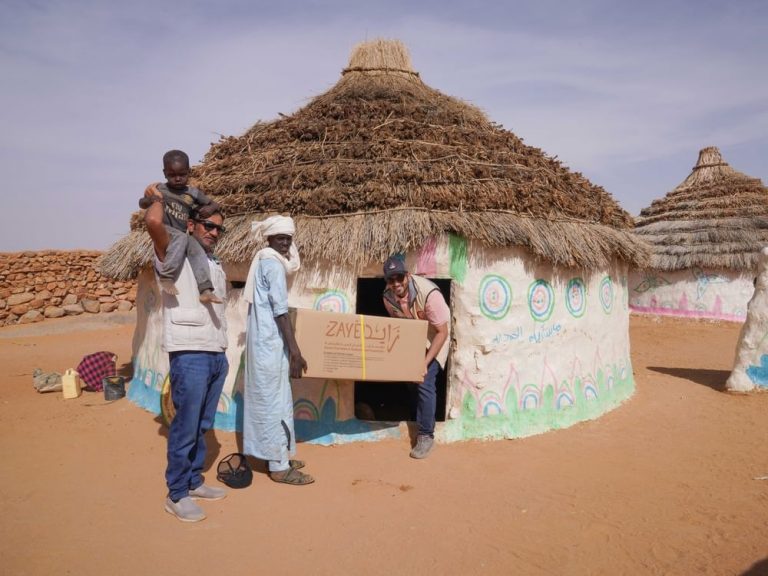
The UAE team is distributing rations to Sudanese refugees and the local community. Additionally, they are visiting villages and towns near the city to evaluate residents’ needs
Abu Dhabi
The UAE humanitarian team is carrying out its Ramadan program in the Chadian city of Amdjarass. They are distributing Ramadan rations to Sudanese refugees and the local community. Additionally, they are visiting villages and towns near the city to evaluate residents’ needs and offer humanitarian aid.
This comes in implementation of the directives of the wise leadership to respond to urgent humanitarian calls and extend a helping hand to the neediest groups.
The team comprises the Emirates Red Crescent (ERC), the Zayed bin Sultan Al Nahyan Charitable and Humanitarian Foundation, and The Khalifa bin Zayed Al Nahyan Foundation. The team works in cooperation with the UAE Aid Coordination Office in Chad.
As part of its Ramadan campaign, the team distributed 6,000 food baskets, 500 relief bags, and living supplies to a number of villages in Amdjarass.
The Ramadan baskets include basic food items such as rice, flour, sugar, oils, grains, baby milk, dates, and other essential family needs, while the relief bags contain Kitchen utensils, household equipment, carpets, and other living materials that contribute to meeting the needs of families.
Read: UAE welcomes 13th group of wounded Palestinian children, cancer patients
Mohammed Idris, Director of the Amdjarass Municipality, praised the UAE’s humanitarian efforts through its continuous initiatives to support Sudanese refugees and the local community in Chad.
He pointed out that distributing Ramadan ration and food baskets to poor villages will greatly contribute to alleviating the suffering of needy families.
In a statement to the Emirates News Agency (WAM), he added that the distribution of food baskets, relief bags, and essential supplies reached numerous villages and towns surrounding Amdjarass, significantly benefiting the residents.
Dr. Salem Al Ameri, the Head of the UAE Field Hospital in Chad, said that since its establishment on July 9, 2023, the hospital has treated around 20,000 patients, including men, women, and children from Sudanese refugees and the local community, averaging 80 patients per day. The hospital has performed simple, moderate, and complex surgeries in specialties like orthopedics, neurosurgery, and general surgery.
He highlighted that the field hospital remains open during Ramadan to offer medical assistance to Sudanese individuals affected by their country’s current situation, supporting Chad and easing the humanitarian challenges caused by the influx of refugees.
Published under the International Cooperation Protocol with Middle East Business Abu Dhabi
__________________